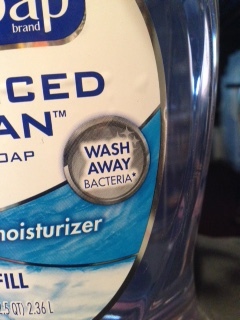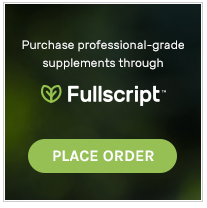Triclosan Toxicity and Its Ban
 |
Triclosan toxicity has been a subject of debate since its release in consumer products in the 1990’s. It is a chlorinated aromatic compound chemical commonly used for its antibacterial and pesticide actions. It was first registered as a pesticide in the US in 1969. |
Most people think that antibacterial soaps like Softsoap and Dial are better at killing “germs”. I have disagreed with that for years, and now the FDA does, too. On September 2, 2016, the United States FDA agency released an announcement on the final ruling on the safety and effectiveness of antibacterial soaps used in consumer settings.
The new ruling establishes that over-the-counter (OTC) consumer antiseptic wash products containing certain active ingredients like triclosan, triclocarban and 17 others can no longer be marketed after one year. Why can’t they be marketed? Manufacturers did not demonstrate that the ingredients are both safe for long-term daily use and more effective than plain soap and water in preventing sickness and the spread of some infections.
Just Plain Soap and Water, Thank You
To quote Dr. Janet Woodcock, MD, director of the FDA’s Center for Drug Evaluation and Research, “Consumers may think antibacterial washes are more effective at preventing the spread of germs, but we have no scientific evidence that they are any better than plain soap and water… In fact, some data suggests that antibacterial ingredients may do more harm than good over the long-term.”
More About Triclosan Toxicity
The FDA did not spring this decision on manufacturers without warning. In fact, the FDA had issued a proposed rule back in December of 2013 requiring manufacturers to demonstrate the safety and effectiveness of those 19 chemicals. Manufacturers had nearly 3 years to produce supporting data and either none was produced or the data submitted did not provide sufficient proof of the FDA’s requirements. In the meantime, studies by other scientists, including some FDA scientists, have shown triclosan toxicity in contributing to the development of antibiotic-resistant bacteria as well as to endocrine disruption, uncontrolled skin cell growth, gut microbiome disruption (dysbiosis) and allergy to egg white protein in animal models.
This chemical has been detected in human body fluids, including breast milk, plasma, and urine.
Regarding endocrine disruption, this chemical was found to alter serum thyroid hormone and testosterone concentrations in male rats, alter estrogen and thyroid hormone levels in female rats, and alter thyroid hormones in bullfrogs and zebrafish. BPA, BDE-47 and triclocarban were also at fault.
Regarding skin cancer, some researchers were not specifically looking at what the antibacterial agent does to the skin microbiome, but instead studied the processes involved in causing tumor development and cell death in the skin of mice and rats. What they found was that at sub-chronic exposure (meaning not constant), mice developed a dose-dependent increase in the incidence of epidermal hyperplasia (proliferation of skin epidermal cells, a precursor to skin cancer) and sites of cell death. Similar results were found in rats. Healthy skin is affected by triclosan toxicity.
Triclosan Toxicity and the Gut Microbiome
Since this is a site about probiotics and microbiomes, it is interesting to me to read about the link of triclosan toxicity to microbiome disruption, meaning dysbiosis.
Researchers who were specifically looking at the effects of this chemical on the mouse microbiome found that exposure to triclosan through the skin affected the gut microbiome and contributed to allergic responses.
Other researchers looked at the effects of food contaminated with triclosan in zebrafish. What they found was that triclosan toxicity was associated with rapid shifts in microbiome structure and diversity, with pathogens having more resistance to it than other bacteria.
Studies were not conducted on humans, but it is clear that there is the potential for triclosan toxicity to your microbiome.
What Should You Do Right Away?
Throw out the antibacterial soap and body wash junk that contains this chemical now. You do not need to spend another day being exposed to triclosan toxicity. Don’t pour it down the drain, just put the entire non-leaking container in the trash. As the FDA states, “Washing with plain soap and running water remains one of the most important steps consumers can take to avoid getting sick and to prevent spreading germs to others. If soap and water are not available and a consumer uses hand sanitizer instead, the U.S. Centers for Disease Control and Prevention (CDC) recommends that it be an alcohol-based hand sanitizer that contains at least 60 percent alcohol.”
What Else Should You Do About Triclosan Toxicity?
Check all of your personal care and household use products. Hand soaps and body washes are not the only products with chemicals like triclosan in them, and in many of these products, the chemical or similar chemicals, can continue to be used. Some toothpastes, such as Colgate Total, contain it. Many kinds of consumer personal care products contain it: after-shave products, deodorants, deodorant body soaps, therapeutic lotions, hand creams, body and laundry sprays, facial masks, and many more. A list of many products including triclosan is available from the EWG.org website.
If an OTC drug contains triclosan, it should be listed as an ingredient on the label, in the Drug Facts box. If a cosmetic contains triclosan, it should be included in the ingredient list on the product label.
Triclosan is also found in clothing, kitchenware, furniture, toys, medical devices and in clinical settings. It is interesting to note that triclosan is regulated in the US by 2 different agencies: the FDA for consumer products and the EPA for pesticide use. Therefore, what you put IN your body is important, too, so try to reduce your exposure to pesticides.
While triclosan toxicity was spotlighted by the FDA, there are many other chemicals which have ill-health effects. Some of them affect your microbiome, as I explain in my book, Probiotics: How to Use Them to Your Advantage. Reduce your synthetic chemical exposure as much as possible without waiting for governments to take action. (Remember how long it took to begin to regulate BPA?)
Subscribers to my newsletters are alerted to other tips and products to use instead.
Return to the page on the health benefits of probiotics.
I research studies and share my clinical experience to write this free site to help you find solutions to your problems. As part of that, I recommend products and services that I genuinely believe will be of help to you. If you click on a link to a product/service, I may receive a small commission to support my efforts if you buy something. The item does not cost you more.
Thanks for visiting this site! If you've enjoyed reading this page or have found the information to be useful to you, please "like", tweet about it, or share it so others can benefit, too. You can leave comments below via Facebook or Disqus.
Comment with Disqus (including as a guest), Twitter or Google accounts:
If you are one of my many readers without a Facebook account, you can still comment.
Disclaimer: Please note: By law, I cannot provide any personalized recommendations for your specific health concern on this site. The information contained in this site is educational in nature and is not intended as diagnosis, treatment, prescription or cure for any physical or mental disease, nor is it intended as a substitute for regular medical care. Consult with your doctor regarding any health or medical concerns you may have.
Subscribe to my occasional newsletter and receive a free copy of "How to Use Probiotics to Lose Weight and Be Healthier".

To comply with the EU's GDPR data privacy regulation, please subscribe here:
Looking for some quality professional supplements, including probiotics? Check out my online dispensary, as I will be doing reviews of some of these products in the future. Click on the Fullscript picture. (Note: If you were a former Wellevate customer, please switch to Fullscript for a better customer experience. Thanks!)
Some competitors of SBI (Solo Build It) are posting fake negative reviews of SBI. If you are considering creating your own website business, or if you have a brick-and-mortar business but want an online presence, I highly recommend SBI!





Comment with Facebook!
I'd love to hear your opinion about what you just read. Leave me a comment in the box below! Other commenting options follow the Facebook comments.